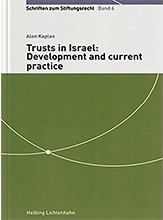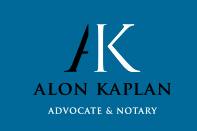Alon Kaplan and Lyat Eyal Freedom of succession has created many discussions over the past few months for estate and trust professionals. This is mainly due to the EU Regulation, which for many is a significant development towards freedom of succession. Israel is a country of immigration and emigration. As movement of individuals between different
Alon Kaplan and Lyat Eyal This article treats the Israeli Hekdesh coupled with an Israeli underlying company as a foundation. It summarizes the taxation of foundations and trusts in Israel, as well as the main provisions of the relevant legislation as revised in 2013 which is now final and effective. The article then continues to
Alon Kaplan, Author Trusts in Israel traces the trust concept in Israel from its historical roots, through early 20th century application of European legal structures enabling the use of trusts for land acquisition in Ottoman times, private/commercial use during the British Mandate, and to current use of common-law trusts, the basis of Israeli trust law. The
Alon Kaplan and Lyat Eyal In Israel, local laws and governmental agencies regulate estate and inheritance matters. Consequently, in order to distribute estate assets, a petition for an inheritance or probate order must be filed locally. Such filings may be avoided by the establishment of a trust during one’s lifetime. By transferring assets to a



